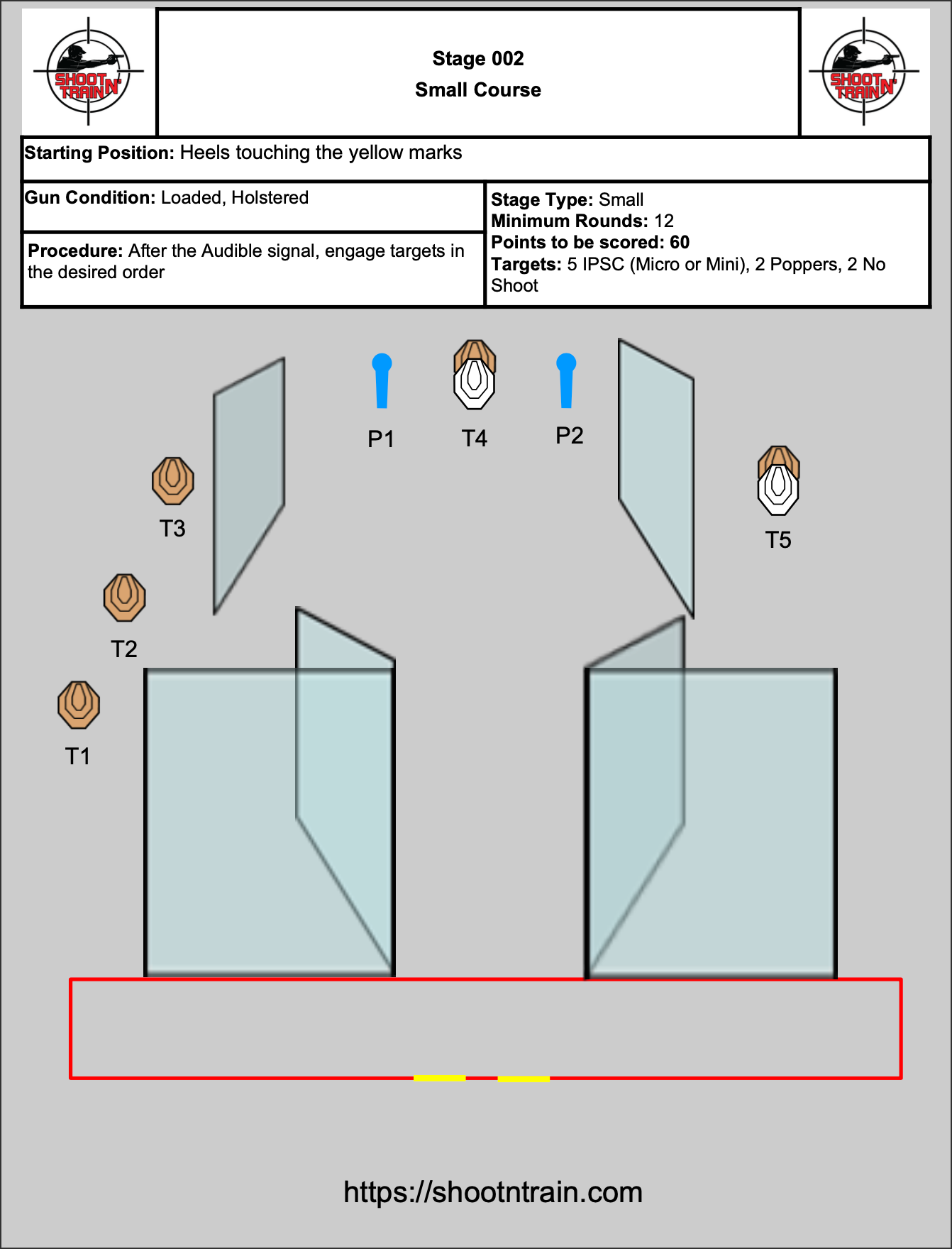Introduction
In the world of competitive shooting, IPSC (Global Practical Shooting Confederation) is a popular and tough sport that requires accuracy, speed, and accuracy. To excel in this sport, shooters must train carefully and master numerous aspects of shooting techniques. One essential component of IPSC training is mastering cardboard targets, which are used to replicate real-world shooting circumstances. In this article, we will explore the importance of IPSC cardboard targets and offer important insights on how to accomplish success in mastering them.
Why IPSC Targets Matter
IPSC targets play a crucial role in training shooters for real-life situations. These targets are designed to imitate human shapes and are often made of cardboard. They can be found in various shapes and sizes, varying from full-sized humanoid targets to partial or miniaturized versions. By practicing with these targets, shooters can boost their marksmanship abilities, speed, and decision-making abilities.
The Role of IPSC Cardboard Targets in Training
Enhancing Precision and Precision
Aiming for Success: Mastering IPSC Cardboard Targets requires shooters to establish extraordinary precision and accuracy. These targets include scoring zones that reward precise shots with greater points. By consistently engaging with these targets throughout session, shooters find out to go for particular locations such as the head or center mass. This concentrate on precision assists improve general precision when engaging real-world threats.
Simulating Real-Life Scenarios
IPSC cardboard targets are designed to imitate real-life circumstances encountered by law enforcement officers or armed civilians. They often include various visual triggers such as "captive" situations or "shoot/no-shoot" scenarios. By training with these practical simulations, shooters can establish quick decision-making skills while under pressure. This is necessary for effectively navigating high-stress scenarios where split-second decisions can imply the difference in between success and failure.
Improving Speed and Response Time
IPSC competitions are understood for their emphasis on speed. Shooters are required to engage several targets within a short period, often while Shoot N Train moving between shooting positions. By practicing with IPSC cardboard targets, shooters can enhance their response time and speed in target engagement. This training equates into faster draw times, quicker target shifts, and total enhanced performance in IPSC competitions.
Choosing Quality IPSC Cardboard Targets
To effectively train for IPSC competitors, it is important to choose shooting training techniques premium cardboard targets that accurately replicate real-world situations. Here are some key aspects to think about when picking IPSC cardboard targets:
Durability: Look for targets made from long lasting corrugated cardboard that can hold up against repeated hits without tearing or falling apart.
Scoring Zone Clarity: Make sure that the scoring zones on the target are clearly defined and easy to differentiate, allowing for precise rating tracking during training sessions.
Realistic Design: Opt for targets that carefully resemble human shapes to simulate real-life shooting circumstances more effectively.
Versatility: Choose targets that can be quickly personalized to fit various training circumstances by adding attachments or overlays.
Affordability: Consider the cost-effectiveness of the targets without compromising on quality or durability.

One brand name that meets these requirements is Shoot N' Train IPSC Targets. Their top quality cardboard targets use extraordinary resilience, clear scoring zones, sensible styles, versatility, and affordability - making them an ideal option for shooters going for success in mastering IPSC cardboard targets.
Frequently Asked Questions (FAQs)
1. Are IPSC cardboard targets ideal for beginners?
Yes, IPSC cardboard targets are suitable for shooters of all ability levels. Novices can benefit from experimenting these targets as they supply a practical simulation of shooting circumstances experienced in real-life situations.
2. How frequently should I experiment IPSC cardboard targets?
Consistency is key in mastering IPSC cardboard targets. It is suggested to practice at least two times a week, devoting adequate time to develop accuracy, speed, and decision-making skills.
3. Can I utilize IPSC cardboard targets for other shooting disciplines?
While IPSC cardboard targets are primarily created for IPSC competitions, they can be valuable training help for shooters involved in other shooting disciplines too. The concepts of precision, precision, and speed equate throughout different shooting sports.
4. Are Shoot N' Train IPSC Targets appropriate for outdoor use?
Yes, Shoot N' Train IPSC Targets are designed to endure outdoor conditions. Their durable building guarantees that they remain undamaged even when exposed to different weather condition conditions.
5. How do I set up IPSC cardboard targets for training sessions?
IPSC cardboard targets can be easily established utilizing target stands or installing systems specifically created for this function. Ensure that the targets are positioned in a safe place with a suitable background to capture any stray rounds.
6. Can I tailor Shoot N' Train IPSC Targets for particular training scenarios?
Yes, Shoot N' Train IPSC Targets provide personalization alternatives such as attachable overlays or accessories that allow you to produce different scenarios and boost the training experience.
Conclusion
Mastering IPSC cardboard targets is a necessary step towards accomplishing success in competitive shooting. By integrating these targets into your training program and following the ideas described in this post, you can improve your precision, precision, decision-making abilities, and overall efficiency in IPSC competitors. Keep in mind to select quality targets like Shoot N' Train IPSC Targets to guarantee a sensible and effective training experience. So, objective high, practice regularly, and work towards mastering IPSC cardboard targets - your ticket to success on the planet of competitive shooting!